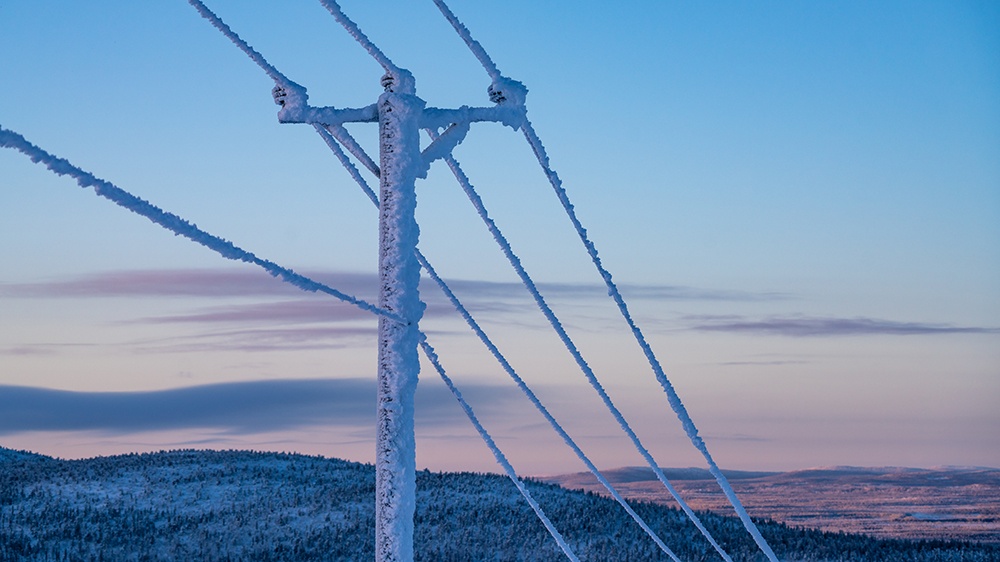Save electricity on Friday – spot prices are up to 20 times higher than normal

The price of exchange electricity – the spot price of electricity sold on the power exchange – will rise to record levels on Friday 5 January 2024. Even at its lowest, the hourly changing price of electricity, including the Finnish value added tax, will be more than a euro per kilowatt-hour (kWh) between 6.00 and 21.00 and more than two euros between 15.00 and 20.00.
The electricity system will continue to function normally. However, consumers, businesses and other electricity users are asked to both save electricity and shift the timing of their electricity consumption. By doing this, they will not only ensure that Finland will have a sufficient electricity supply, but they could also reduce their own electricity bill. For customers who have an electricity contract following the spot prices, tomorrow's electricity bill may be nearly 20 times higher than on an average day.
In Finland, the prolonged cold spell with record low temperatures is at times pushing the peak consumption of electricity to nearly 15,000 megawatts. Finland supplements its domestic electricity production with imports from Sweden and Estonia. Bitingly cold weather will continue across the country at least until the weekend. The severity of the current cold wave with temperatures rarely seen in Finland is comparable to the cold winter experienced at the end of 1980s.
The hourly electricity prices are published on Nord Pool’s page for day-ahead prices. The Finnish value added tax at 24% and the electricity retailer's margin (0.3–1.0 cents/kWh) should be added to the wholesale price shown in the table. For example, the figure of 1000.00 in the table means that the wholesale price of electricity on the power exchange is EUR 1/kWh.
Low risk of electricity shortage – Finland is well prepared for shortages
Finland’s transmission system operator Fingrid estimates that due to the longer-than-normal cold snap electricity consumption will remain at a high level until the end of the week. From Sunday, a warmer weather front will ease the situation on the electricity market and ensure that the supply of electricity remains at a good level. Energy-saving measures and demand response, i.e. shifting the timing of electricity use outside peak consumption hours, will also improve the supply of electric power.
The risk of electricity shortage is currently low in Finland. The combined effect of several factors could lead to a shortage of electricity if during a long and severe cold period Finland's own production capacity was insufficient to cover peak consumption hours and at the same time significant disruptions to the generation and imports of electricity were to occur in the transmission system or in power plants.
Finland is well prepared for electricity shortages. The authorities, the transmission system operator and the distribution system operators have drawn up instructions in advance for dealing with electricity shortages.
As demand for electricity production and consumption increases, Fingrid uses three system status descriptions: electricity shortage is possible, high risk of electricity shortage and electricity shortage. Should Finland face a shortage of electricity, Fingrid would ask distribution system operators to restrict consumption. The restrictions would affect a limited number of customers for a few hours at a time. Planned power outages would exclude functions vital to society. It is estimated that the restrictions would amount to less than two per cent of Finland's total consumption.
The Ministry of Economic Affairs and Employment has launched a project on the capacity mechanism referred to in the Government Programme or a similar system, which would improve the ability to control the power system in order to better manage consumption and production fluctuations. Energy storage can also be used to increase the system's flexibility.
Inquiries:
Petteri Kuuva, Senior Ministerial Adviser, Ministry of Economic Affairs and Employment, tel. +358 295 064 819
Riku Huttunen, Director General, Ministry of Economic Affairs and Employment, tel. +358 50 431 6518
Fingrid: Information on electricity shortages
Motiva's advice on saving electricity at home and at workplaces (4.1.2024) ja 3.1.2024 (available in Finnish and Swedish)